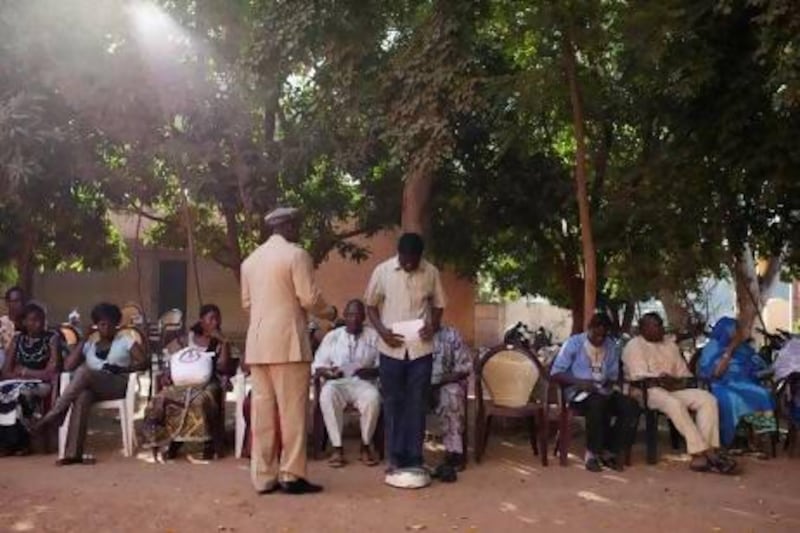TUNIS // As the international mission gathers momentum in Mali, concerns are growing among North African security and political officials that the escalating conflict could affect their already chaotic security.
"The situation in Mali has always worried us because we have begun to understand that our jihadists ... have ties with these terrorist forces," said the Tunisian president, Moncef Marzouki, at the weekend. "We have the impression that Tunisia is becoming a corridor for Libyan weapons to these regions," he added.
The rapid movement of the international military initative against the loose coalition of forces, which includes groups linked to Al Qaeda and Tuareg independence fighters, highlighted growing regional fears that weapons trafficking and solidifying links between jihadi groups could lead to attacks and unrest in Libya and the countries of the Maghreb.
The Tunisian prime minister, Hamadi Jebali, joined Libyan and Algerian counterparts for talks in the Libyan border city of Ghadames on Saturday.
Libya closed all its southern borders and declared the vast south of its country a closed military zone last month amid fears that militants and refugees from the Malian conflict were passing through porous borders and posing a security threat.
"The war in Mali is going to accelerate, then we are going to be faced with a lot of refugees," said Hassan Al Amin, a Libyan parliamentarian. "We are not in a position to deal with them at the moment. If you have a mass of people coming into the country, we don't know who they are, and they are in an area like the south which is already not very stable, it could be a big problem."
He added that many Libyans worried that there were connections between violent groups in Libya, which remains unsettled, and groups in Mali's north.
A statement was released after the meeting calling for sharing of intelligence, joint control points on borders and regular meetings between security officials of the three countries.
Abdelmalek Sellah, the prime minister of Algeria, told reporters that, "the security problem between Tunisia, Libya and Algeria is not so easy ... they are threatened by the rise of tensions in Mali and in Somalia."
Algerian state media reported that the Malian prime minister, Diango Cissoko had arrived yesterday in Algiers for a two-day visit - at the invitation of Mr Sellal - to discuss security cooperation, among other things.
Ecowas, a union of countries in West Africa, confirmed yesterday that member states would send troops into Mali under a bilateral agreement. The group has for months been pressing for an international military effort to contain the situation in northern Mali, where a shifting alliance of Tuareg and Islamist groups rushed in to fill a security vacuum created after the president, Amadou Toumani Toure, was ousted in a military coup last year.
"We encourage member states to support Mali to do what they need to do," said Sonny Ugoh, a spokesman for the group, speaking from Nigeria. "We should sit and wait? Al Qaeda has overrun some areas of the north, occupied it." Efforts at diplomacy, he said, had not been fruitful.
However, there are likely to be self-imposed limits on the extent of the international military effort, said William Lawrence, North Africa director for the International Crisis Group, a think tank. While strenuous efforts will be made to stop the southern movement of rebels into strategically important areas, such as the town of Konna, the campaign is unlikely to go faurther north at the moment.
Algeria, with its 1,600-kilometre border with northern Mali, is the country most affected by the conflict there, and has long pushed for a negotiated solution to the problem, hosting rebel groups for peace talks in December. It would be likely to discourage an international military offensive in the north, said Dr Lawrence.
"In many ways the northern Mali conflict is an extension of Algerian issues," Dr Lawrence said. "The main lens through which Algeria views all this is that they feel that foreign military intervention in Mali would destabilise the whole region."
Algeria, with the largest and best-trained military and security apparatus in the region has "a lot of clout" Mr Lawrence said, before adding: "There's no question that Algeria would like to tamp down and contain anything happening in northern Mali, which may be different from what they seek in Bamako and Paris."





